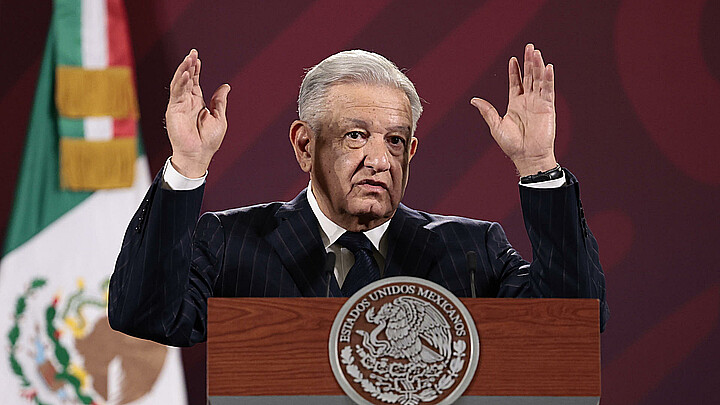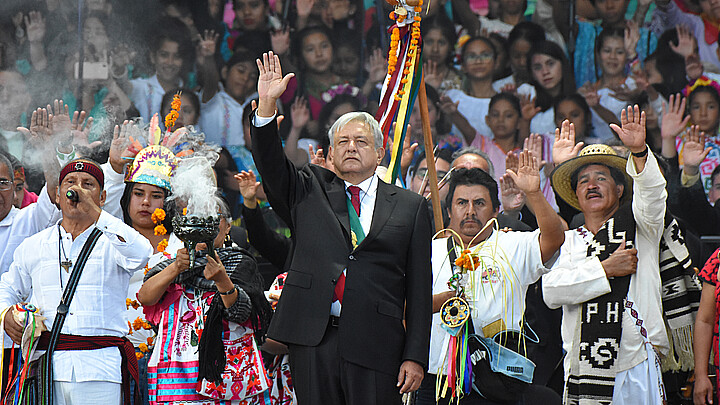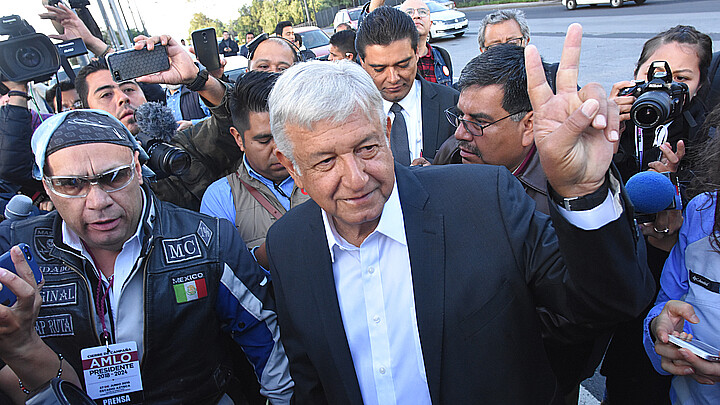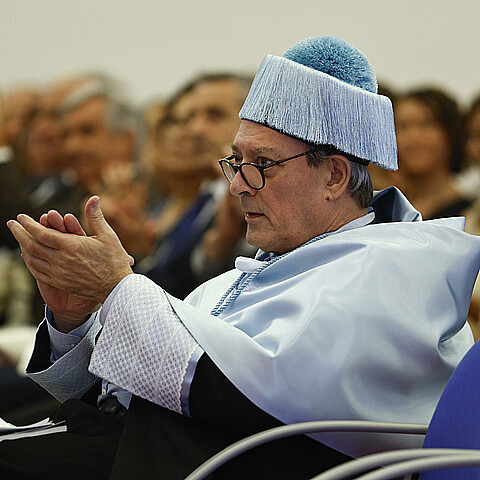Politics
Christian conservatives find hope with soap opera actor Eduardo Verástegui in Mexico presidential race
Verástegui hopes to energize evangelical conservatives with his opposition to LGBTQ inclusion and abortion.
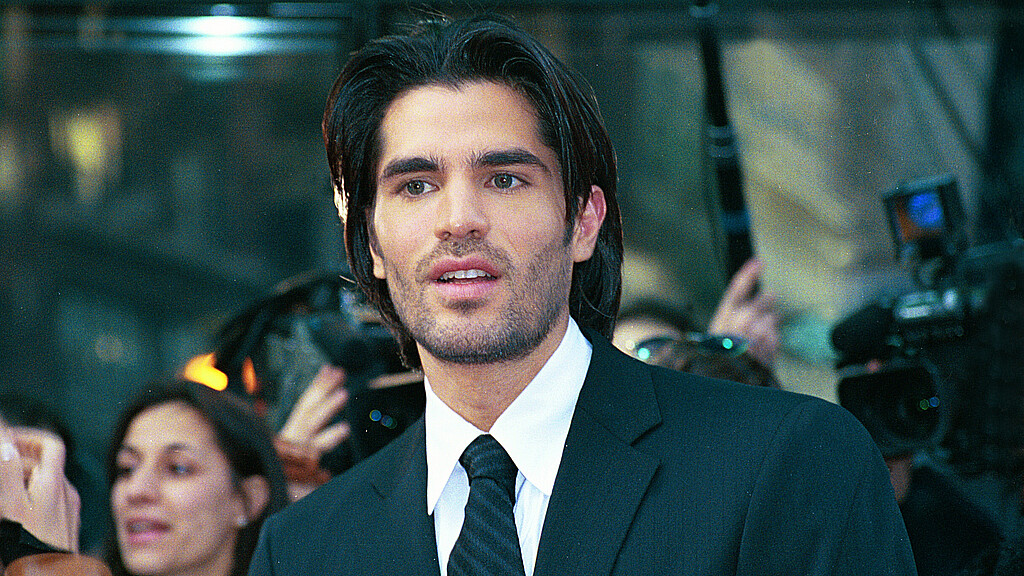
November 21, 2023 9:56am
Updated: November 21, 2023 5:27pm
Mexican film telenovela actor tuned producer Eduardo Verástegui has been frustrated with his country’s shift to the left ever since the election of MORENA party Manuel Andreas Lopez Obrador.
His concerns about his country’s political situation grew after the Mexican Supreme Court decriminalized abortion, Verástegui registered as an independent candidate to run in the upcoming 2024 presidential election.
With a flare of Hollywood drama, the actor dressed in black on the day he registered, hoping to send a signal that he was attending an upcoming funeral for his country, which he believes needs saving.
“Mourning is a reminder for me to recall why I’m doing this,” the former telenovela turned film producer actor told his countrymen.
Verástegui has an uphill battle to collect one million signatures by early January, especially in a Latin American country that has shifted to the left with ongoing where abortion and LGNTQ+ activists working regularly to promote their messages.
But the 49-year old actor turned producer has an ace up his sleeve.
Verástegui is relying on the fact that Mexico is a deeply Catholic nation and plans to do the opposite of what most centrists and centrist leaning conservative politicians have done: avoid the issues.
While many politicians have avoided clarifying their stance on abortion and LGBTQ+ rights, Verástegui openly prays on social media platforms and boasts that embracing God changed his life. He overtly opposes LGBTQ+ inclusion, and says if he is elected, he will fight until the end to limit abortion access.
Now, conservative soldiers and fellow Catholics are not only showing their electoral support, but joining his ranks to help him collect signatures.
Felícitas Díaz, 65, told the Associated Press she supports Verástegui because he is the only prominent anti-abortion candidate.
“Killing innocent beings is not OK,” Díaz said, referring to the expansion of abortion rights in her country.
“I was sad, worried, thinking ‘Who am I going to vote for?’ and when I was told about him, a light opened up for me.”
Díaz said, she spent years supporting Mexican conservatives that shared her ideology, but the decisions made by its leaders ahead of 2024 elections have left her feeling disillusioned.
Another volunteer said she related to Verástegui’s religious values.
“I identify with his values, with his Catholic faith,” 46-year old Alejandra Hernández said during a training session set up for Verástegui volunteers.
At first glance, Verástegui may seem like an underdog. News reports have already projected former Mexico City Mayor Claudia Shienbaum as the favorite and have started an early celebration in media reports that she will most likely be the country’s first female president.
Sheinbaum is Jewish and has grandparents who fled Bulgaria during the 1940s to escape the Holocaust.
Sheinbaum leads the polls to succeed her mentor, President Andrés Manuel López Obrador, who has endorsed her and showered her with support.
Some Centrists have rallied around a National Action Party (PAN) coalition that is pushing Senator Xóchitl Gálvez as a challenger. But conservatives also view Gálvez as a progressive whereas they view Verástegui as someone who could fill the political shoes of a populist leader like former presidents Donald Trump of the United States, José Antonio Kast of Chile and Santiago Abascal in Spain.
Some have called the populist shift the “new right,” which signals a return to religious values and safeguarding private property and individual rights.
Verástegui’s political campaign slogan, “God, Homeland and Family,” promotes a platform of returning Christian values into the political process.
Some Mexicans, such as 31-year-old businessman Isaac Alonso said he works with a group of young Mexicans supporting Verástegui.
“More than far-right, as the media calls us, we are patriots,” he told the AP.
“We are brave women and men who cannot leave our future in the hands of corrupt politicians who are incapable of governing themselves.”
Another voter, 23-year old named Frida Espinoza who runs a pro-life organization said she felt Verástegui after listening to his life story and how he found God. She said she will vote for him whether his name appears on the ballot or not.
“Parties are allying themselves with values that do not represent me,” Espinoza said. “And I am not going to legitimize a person who opposes everything I believe in.”
This is not the first time an actors or business leaders has interjected themselves into the Latin American political sphere.
When López Obrador came to power with the MORENA Party in 2018, he was also viewed as a “Mexican Donald Trump” because he was viewed as a populist who was not a political insider. Three years prior, Guatemalans elected a television comedian.
While Verástegui has become a guiding light for evangelical conservatives, some on the left have expressed concerns about his views.
He has said there was a connection at times between homosexuality and pedophilia and also referred to advocates of gender ideology and climate change.
Verástegui has reportedly openly conceded he admires former Brazilian President Jair Bolsonaro and Hungary’s Prime Minister Viktor Orbán, whom some consider to be “far right” politicians.
Verástegui was born in northern Mexico and relocated to Mexico City as an adult to pursue a career in acting despite pressure from his parents to study and practice law.
He faced a moment of truth when, a few years later, a woman in the U.S. who was teaching him English asked him what his purpose in life was.
He then changed course and began producing movies that projected his political values. One of his films is about the evils of child trafficking and to project his views on abortion.
Verástegui hopes that his past work will speak to Mexican voters and lead millions to commit to what Frida Espinoza has—voting for him whether he is on the ballot or not.
The 2024 Mexican general elections are scheduled for June 2, 2024 where citizens will elect a new president to a one time six-year term as well as 500 members of the Chamber of Deputies and 128 members of the Senate of the Republic.

